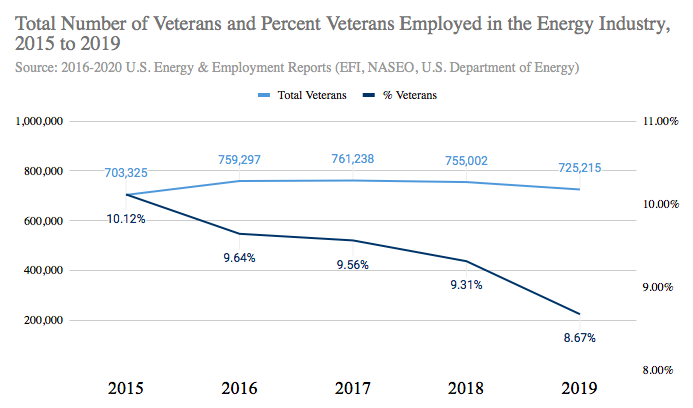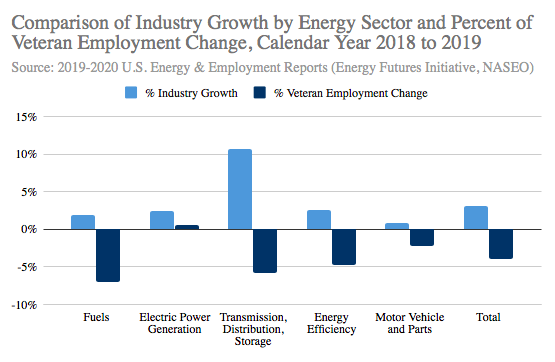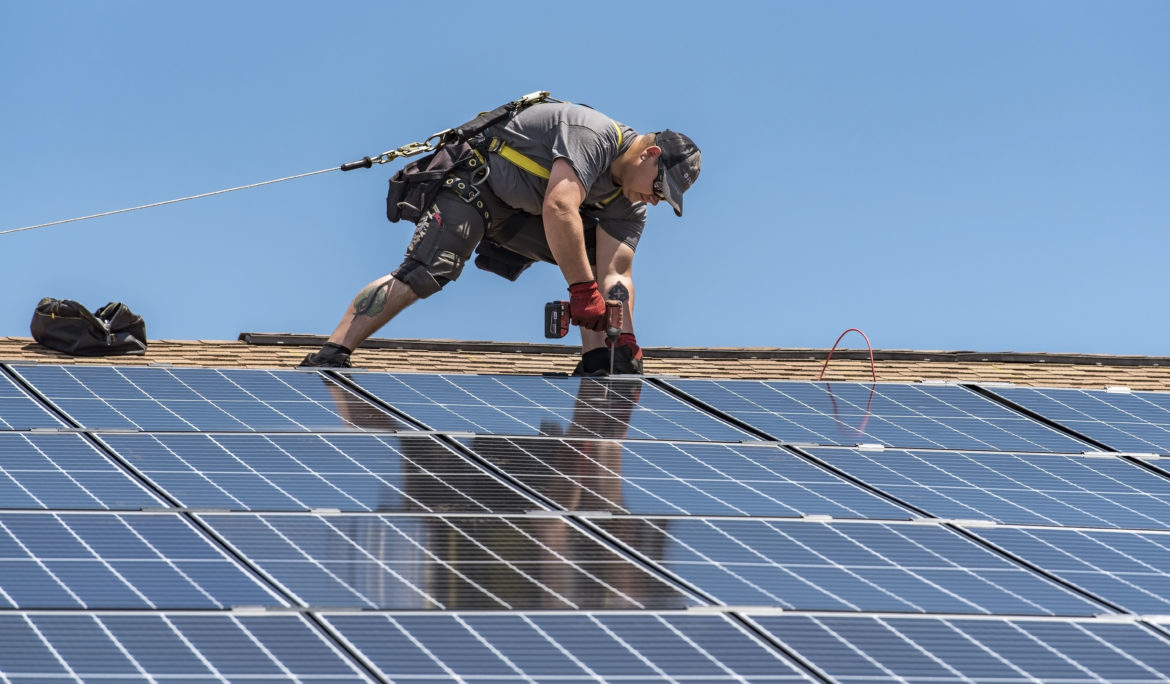Job opportunities in clean energy industry are now at risk due to economic slowdown with negative impact on military veterans.
 Dan Misch is founder and co-director of the Veterans Advanced Energy Project.
Dan Misch is founder and co-director of the Veterans Advanced Energy Project.At the beginning of the year, wind and solar energy were poised to have record breaking growth in 2020 with an additional 32 GW of capacity from the declining levelized cost of electricity, sunsetting government tax incentives, and increased investments from private industry to combat climate change. This growth represents a nearly 20% increase in existing capacity, creating an increasing number of clean energy jobs. However, the global spread of the novel coronavirus is challenging these projections.
The research and consultancy group Wood MacKenzie suggests that clean energy investment is likely to take a hit: “all discretionary spend will be under review — that includes additional budget allocated for carbon mitigation. And companies that haven’t yet engaged in carbon reduction strategies are likely to put the issue on the back burner.”
Energy demand, a key driver for renewable energy investment, is also expected to level off in 2020. PJM Interconnection, the transmission operator across 13 East Coast states, reports “noticeable” impacts on demand due to the many shelter-in-place orders currently in effect. In China, energy demand is beginning to rebound as factories come back online, but subsequent outbreaks of the virus could cause demand to recede again.
In response to these challenges, clean energy advocates have spoken out for continued investment and government support through the extension of tax credit deadlines. Fatih Birol, executive director of the International Energy Agency, described the situation as a “test of governments and companies’ commitment to clean energy transitions.” Unfortunately, the U.S. is failing that test: clean energy support in the U.S. stimulus package was stripped out by Republicans because Democrats dug in their heels to stop a large purchase of oil for strategic reserves. This failure to promote investment in renewable energy growth in the face of the coronavirus economic depression is bad for jobs, veterans, and national security.
The clean energy transition strengthens U.S. national security by diversifying energy supplies, reducing reliance on foreign fuels, and mitigating the compounding effects of climate change. Military veterans have the technical and leadership skills necessary to fill key positions being created in the transition to clean energy. For these reasons, employment in clean energy can help veterans continue their mission to serve their country — as long as those jobs still exist.
The 2020 U.S. Energy & Employment Report shows that the total number of US energy jobs has increased by 12% over the past five years, but veteran employment as a fraction of those jobs has declined over the same time period.

Despite growth in nearly every sector of the energy industry, the number of jobs held by military veterans decreased in 2019 with higher losses in clean energy when compared to fossil fuels. Across specific subsectors, veteran employment in the oil, natural gas, hydro, and nuclear power generation industries increased relative to industry change, whereas veteran employment in all other fuels, generation, transmission, distribution, storage, energy efficiency, and motor vehicles declined relative to industry trends.

The outlook for improving veteran employment in the energy industry is grim when considering the impact the coronavirus will have on the economy. Already, the Advanced Energy Economy reports that 30% of its members have reduced their workforce and over 40% have stopped hiring. In response to 10 million unemployment filings in March, former Secretary of Energy Ernie Moniz outlined a plan for an Energy Jobs Coalition with widespread strategies to support infrastructure investment and the jobs to make it happen.
Although the plan does not specifically call for veteran support programs, Secretary Moniz is no stranger to the concept — the U.S. Department of Energy launched both the Solar Ready Vets and Veterans in Energy initiative during his tenure. The Energy Jobs For Our Heroes Act of 2019, introduced by Illinois Sen. Tammy Duckworth, aims to continue this legacy with training platforms to prepare veterans for jobs in emerging energy markets.
Future stimulus packages in response to the coronavirus should not only include support for continued clean energy investment, but also additional help to prepare military veterans for employment in these growing sectors of the economy.
Dan Misch is a U.S. Navy veteran, founder and co-director of the Veterans Advanced Energy Project, and a senior fellow with the Atlantic Council Global Energy Center.
Original source: Energy News Network
